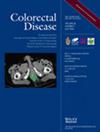摘要
目的 慢性放射性直肠病(CRP)是放疗的一个重要副作用,对临床治疗提出了挑战,需要有效和标准化的治疗方法。本综述旨在研究内窥镜干预对 CRP 的作用,重点关注氩等离子凝固 (APC) 和福尔马林应用。 方法 对调查 CRP 患者对内窥镜治疗的临床反应的研究进行文献检索。根据 PRISMA 指南进行了系统综述,并采用随机效应模型对比例进行了荟萃分析。ROBINS-I 和 Cochrane 协作工具分别用于评估队列研究和随机对照试验的偏倚风险。 结果 共有 82 项研究符合纳入标准,其中包括 11 项随机对照试验、20 项系统综述、1 项队列研究和 50 项病例系列研究。APC疗法和福尔马林疗法的汇总反应率分别为89%(95% CI 84%-92%,p = 0.01;95% CI 84%-93%,p = 0.03)。不良反应通常很小。 结论 内镜疗法,尤其是 APC 和福尔马林疗法,在治疗 CRP 方面表现出值得称赞的临床反应率。然而,由于缺乏标准化的治疗方案,因此需要进行更大规模的前瞻性研究。要提高患者的治疗效果并将与 CRP 相关的发病率降到最低,就必须制定明确的指导方针,并辅以明确的结果和生活质量评估。Aim
Chronic radiation proctopathy (CRP) is a significant side-effect of radiotherapy, and poses a challenge in clinical management, necessitating effective and standardized therapeutic approaches. The aim of this review is to investigate the role of endoscopic interventions for CRP, focusing on argon plasma coagulation (APC) and formalin application.
Method
A literature search was undertaken for studies that investigated the clinical responses to endoscopic management in patients with CRP. A systematic review was performed in accordance with PRISMA guidelines, and a meta-analysis of proportions was conducted with a random-effects model. ROBINS-I and the Cochrane Collaboration's tool were used to assess risk of bias in cohort studies and randomized control trials, respectively.
Results
A total of 82 studies met the inclusion criteria, including 11 randomized control trials, 20 systematic reviews, one cohort study and 50 case series. A robust 89% (95% CI 84%–92%, p < 0.01 and 95% CI 84%–93%, p = 0.03) pooled response rate was demonstrated for both APC and formalin therapies, respectively. Adverse effects were generally minimal.
Conclusion
Endoscopic therapies, particularly APC and formalin, exhibit commendable clinical response rates in the management of CRP. However, the lack of standardized treatment protocols highlights the need for larger prospective studies. Clear guidelines, informed by defined outcomes and quality-of-life assessments, are imperative for enhancing patient outcomes and minimizing the morbidity associated with CRP.

 求助内容:
求助内容: 应助结果提醒方式:
应助结果提醒方式:


